Quotes By and About the Presidents"He seeks information from all quarters, and judges more independently than any man I ever knew." --John Adams, writing about President George Washington, 1789 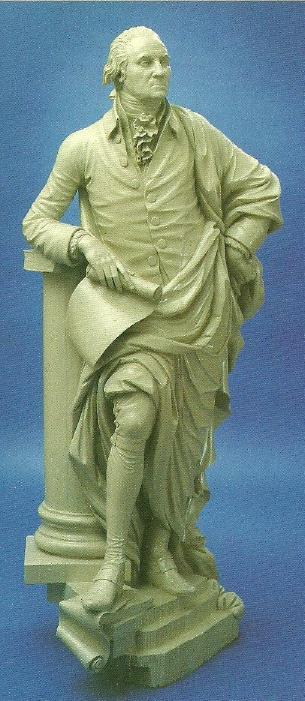 Statue of George Washington by William Rush (c. 1814) Presidents' own reflections on the presidency and their experience with it are interesting and sometimes surprising. Also useful are comments by people of varied backgrounds on specific presidents or the presidency in general. This collection offers both categories, including remarks that are candid and colorful. It also includes some presidents' statements of basic philosophy or policy. If you want to go directly to a specific president, please check the alphabetical list below for the link. Below the alphabetical list, presidents and their comments appear in chronological order, from Washington to Obama. Not all presidents are included, but we will add more from time to time. A "By" section features comments by an individual president. An "About" section has comments by others--sometimes including other presidents--about him. After specific presidents, a section of Other Comments on the Presidency offers topics such as "Ambition" "Ethics," and "Power." We found paintings and photographs of presidents in a variety of sources. Websites of the White House and the Smithsonian Institution's National Portrait Gallery were especially helpful. The photograph above--of a George Washington statue by a great sculptor who had fought under him in the American Revolution--shows the old general's force and determination as few other images do. We think of it as the "Don't Mess with George" picture. Official presidential portraits often omit signs of aging; but a photograph of Zachary Taylor shows him as he actually looked and thus serves as a reality check on all the official portraits. (Actually, though, "Old Rough and Ready" looked quite impressive as he really was.) President Calvin Coolidge, a serious fellow, often has been pictured as stern or gloomy. In the interest of challenging stereotypes, we include this photo from his 1925 presidential inauguration: 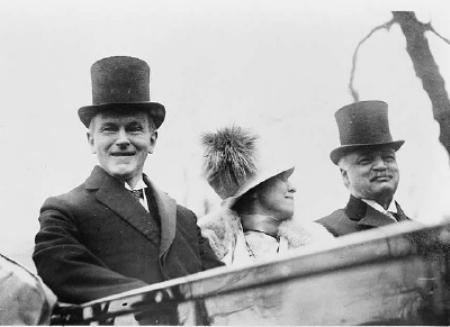 President Calvin Coolidge, Mrs. Grace Coolidge, and Senate Majority Instead of a formal portrait, we include below another photo in which Coolidge looked downright happy. A few technical notes on quotations: 1) Archaic capitalization and punctuation--and the occasional grammatical mistake--have not been corrected. 2) When a novel is quoted, names of the fictional characters are enclosed in quotation marks. 3) A standard series of presidential documents, Public Papers of the Presidents of the United States is shortened here to PPPUS. The U.S. Government Printing Office, Washington, D.C., publishes these hefty volumes. They cover all presidents since Herbert Hoover, with the exception of Franklin D. Roosevelt. The FDR papers, and those of many earlier presidents, were published privately. 4) We follow PPPUS in calling the senior President Bush "George Bush" (omitting his middle initials) and calling his son "George W. Bush." 5) An awesome resource on presidential quotes from George Washington through John Kennedy is: Arthur Bernon Tourtellot, The Presidents on the Presidency (New York: Doubleday, 1964). 6) We have checked quotes against the sources we cite for them. John Adams CHRONOLOGICAL ORDER: George Washington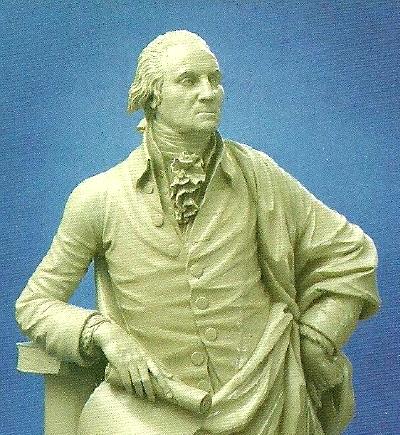 Statue of George Washington by William Rush (c. 1814) By: ...my movements to the chair of Government will be accompanied by feelings not unlike those of a culprit who is going to the place of his execution: so unwilling am I, in the evening of a life nearly consumed in public cares, to quit a peaceful abode for an Ocean of difficulties, without that competency of political skill, abilities and inclination which is necessary to manage the helm.... Integrity and firmness is all I can promise... George Washington to the Acting Secretary at War [Henry Knox], April 1, 1789 (shortly before Washington's first inauguration), John C. Fitzpatrick, ed., The Writings of George Washington (Washington: U. S. Government Printing Office, 1931-44), vol. 30, 268. My ardent desire is, and my aim has been...to comply strictly with all our engagemts.foreign and domestic; but to keep the U States free from political connexions with every other Country. To see that they may be independent of all, and under the influence of none. In a word, I want an American character, that the powers of Europe may be convinced we act for ourselves and not for others; this in my judgment, is the only way to be respected abroad and happy at home... President George Washington to Patrick Henry, Oct. 9, 1795, ibid., vol. 34, 335. Observe good faith and justice towds. all Nations. Cultivate peace and harmony with all.... The Great rule of conduct for us, in regard to foreign Nations is in extending our commercial relations to have with them as little political connection as possible.... Our detached and distant situation invites and enables us to pursue a different course.... Why forego the advantages of so peculiar a situation? Why quit our own to stand upon foreign ground? President George Washington, "Farewell Address," Sept. 19, 1796, ibid., vol. 35, 231, 233, 234. About: He seeks information from all quarters, and judges more independently than any man I ever knew. Vice President John Adams to Silvanus Bourn, Aug. 30, 1789, The Works of John Adams...with a Life of the Author, Notes, and Illus. by His Grandson, Charles Francis Adams (n.p., 1850-56, 10 vols.; reprint, Freeport, N.Y.: Books for Libraries Press, 1969), vol. 9, 561. First in war, first in peace, and first in the hearts of his countrymen... Major General and Rep. Henry Lee III ("Light-Horse Harry Lee"), eulogy of Washington, Dec. 26, 1799, quoted in Noel B. Gerson, Light-Horse Harry (Garden City, N.Y.: Doubleday, 1966), 214. His mind was great and powerful, without being of the very first order; his penetration strong, though not so acute as that of a Newton, Bacon, or Locke; and as far as he saw, no judgment was ever sounder. It was slow in operation, being little aided by invention or imagination, but sure in conclusion.... Perhaps the strongest feature in his character was prudence, never acting until every circumstance, every consideration, was maturely weighed; refraining if he saw a doubt, but, when once decided, going through with his purpose, whatever obstacles opposed. His integrity was most pure, his justice the most inflexible I have ever known, no motives of interest or consanguinity, of friendship or hatred, being able to bias his decision. He was, indeed, in every sense of the words, a wise, a good, and a great man. His temper was naturally irritable and high toned; but reflection and resolution had obtained a firm and habitual ascendency over it. If ever, however, it broke its bonds, he was most tremendous in his wrath.... Thomas Jefferson to Dr. Walter Jones, Jan. 2, 1814, The Writings of Thomas Jefferson (Washington: Thomas Jefferson Memorial Association, 1903), vol. 14, 48-49. It was Washington's vision, his balance, his integrity that made the Presidency possible. The Constitution was, and remains, a majestic document. But it was a blueprint, an outline for democratic government, in need of a master builder to ensure its foundations were strong. Based on that document, Washington created a living, functioning government. He brought together men of genius, a team of giants, with strong and competing views. He harnessed and directed their energies. And he established a precedent for 40 presidents to follow. President George Bush, Remarks at the Bicentennial Celebration of George Washington's Inauguration, April 30, 1989, PPPUS, George Bush 1989, Book I, 498. John Adams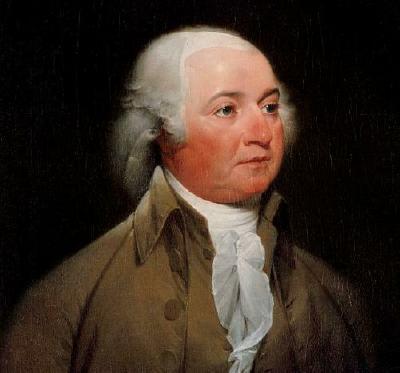 Portrait of John Adams by John Trumbull (1792-93) By: Before I end my Letter I pray Heaven to bestow the best of Blessings on this House and all that shall hereafter inhabit it. May none but honest and wise Men ever rule under this roof. President John Adams (writing from what is now called the White House) to Abigail Adams, Nov. 2, 1800, from microfilm of Adams manuscripts, Library of Congress, Washington, D.C. Thomas Jefferson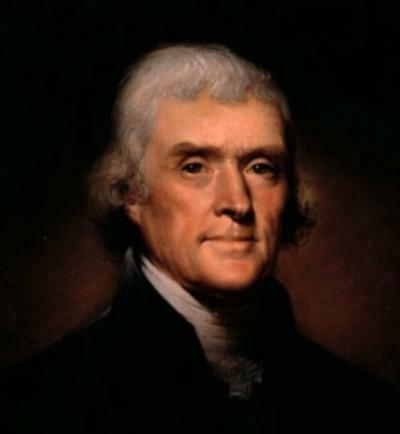 Portrait of Thomas Jefferson by Rembrandt Peale (1800) By: ...it is jealousy & not confidence which prescribes limited constitutions, to bind down those whom we are obliged to trust with power... in questions of power then, let no more be heard of confidence in man, but bind him down from mischief by the chains of the constitution... Thomas Jefferson, "Jefferson's Fair Copy" of his draft of the "Kentucky Resolutions of 1798," in Barbara B. Oberg, ed., The Papers of Thomas Jefferson (Princeton, N.J.: Princeton University Press, 2003), vol. 30, 548. Let us restore to social intercourse that harmony and affection without which liberty and even life itself are but dreary things. President Thomas Jefferson, First Inaugural Address, March 4, 1801, Inaugural Addresses of the Presidents of the United States (Washington: U.S. Government Printing Office, 1989), 14. Sometimes it is said that man can not be trusted with the government of himself. Can he, then, be trusted with the government of others? Or have we found angels in the forms of kings to govern him? Let history answer this question. Ibid., 15. ...peace, commerce, and honest friendship with all nations, entangling alliances with none... Ibid., 16. If, in my retirement to the humble station of a private citizen, I am accompanied with the esteem and approbation of my fellow citizens, tropies obtained by the blood-stained steel, or the tattered flags of the tented field, will never be envied. The care of human life and happiness, and not their destruction, is the first and only legitimate object of good government. Former President Thomas Jefferson to the Republican Citizens of Washington County, Md., March 31, 1809, in Andrew A. Lipscomb ed., The Writings of Thomas Jefferson (Washington: Thomas Jefferson Memorial Association, 1903-04), vol. 16, 359. Andrew Jackson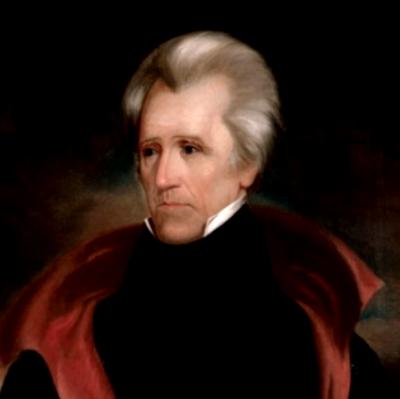 Portrait of Andrew Jackson by Ralph Earl (c. 1835) About: Jackson's mistakes were many, his legacies not all bright; more than one such President a century would be hard to take. Yet he was a giant in his influence on our system of government, and the influence, on balance, seems to have been wholesome. Clinton Rossiter, The American Presidency (Baltimore: Johns Hopkins University Press, 1987, 2nd ed., reprint), 83. Zachary Taylor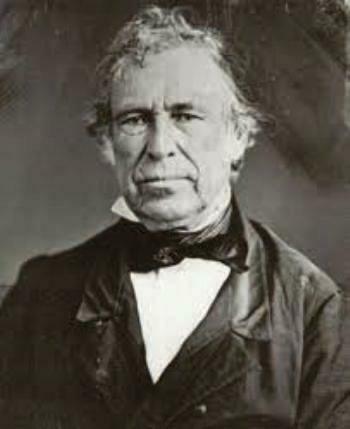 Photograph (daguerreotype) of Zachary Taylor (c. 1850) By: In the discharge of these duties my guide will be the Constitution, which I this day swear to "preserve, protect, and defend." For the interpretation of that intrument I shall look to the decisions of the judicial tribunals established by its authority and to the practice of the Government under the earlier Presidents, who had so large a share in its formation. To the example of those illustrious patriots I shall always defer with reverence, and especially to his example who was by so many titles "the Father of his Country." Zachary Taylor, Inaugural Address, March 5, 1849, in Joint Congressional Committee on Inaugural Ceremonies, Inaugural Addresses of the Presidents of the United States from George Washington 1789 to George Bush 1989 (Washington: U.S. Government Printing Office, 1989), 112.
As American freemen we can not but sympathize in all efforts to extend the blessings of civil and political liberty, but at the same time we are warned by the admonitions of history and the voice of our own beloved Washington to abstain from entangling alliances with foreign nations. In all disputes between conflicting governments it is our interest not less than our duty to remain strictly neutral, while our geographical position, the genius of our institutions and our people, the advancing spirit of civilization, and, above all, the dictates of religion direct us to the cultivation of peaceful and friendly relations with all other powers. It is to be hoped that no international question can now arise which a government confident in its own strength and resolved to protect its own just rights may not settle by wise negotiation; and it eminently becomes a government like our own, founded on the morality and intelligence of its citizens and upheld by their affections, to exhaust every resort of honorable diplomacy before appealing to arms. In the conduct of our foreign relations I shall conform to these views, as I believe them essential to the best interests and the true honor of the country. Ibid., 113.
Abraham Lincoln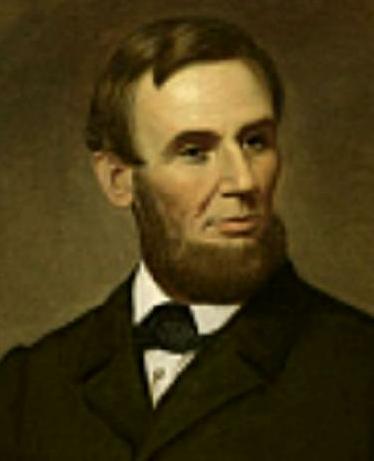 Portrait of Abraham Lincoln by Charles Wesley Jarvis (1861) By: As an individual who undertakes to live by borrowing, soon finds his original means devoured by interest, and next no one left to borrow from--so must it be with a government. A. Lincoln, S. T. Logan, and A. T. Bledsoe, "Campaign Circular from Whig Committee," March 4, 1843, Roy P. Basler, ed., The Collected Works of Abraham Lincoln (New Brunswick, N.J.: Rutgers University Press, 1953), vol. 1, 311 & 318. [Lincoln's reference to "our Convention" in the following letter apparently means the 1787 Constitutional Convention:] The provision of the Constitution giving the war-making power to Congress, was dictated, as I understand it, by the following reasons. Kings had always been involving and impoverishing their people in wars, pretending generally, if not always, that the good of the people was the object. This, our Convention understood to be the most oppressive of all Kingly oppressions; and they resolved to so frame the Constitution that no one man should hold the power of bringing this oppression upon us. But your view destroys the whole matter, and places our President where kings have always stood. Abraham Lincoln to William H. Herndon, Feb. 15, 1848, ibid., 451-52. [Describing a meeting of President Lincoln with an old friend from Illinois:] As this particular gentleman was about to leave he said to Mr. Lincoln, "I want you to be honest with me. How do you like being president of the United States?" Well, Mr. Lincoln smiled and looked at him and then said, "You have heard the story, haven't you, about the man as he was ridden out of town on a rail, tarred and feathered, somebody asked him how he liked it, and his reply was if it was not for the honor of the thing, he would much rather walk." P. M. Zall, ed., Abe Lincoln Laughing (Berkeley: University of California Press, 1982), 143 & 165, citing Gen. Horatio C. King, Address to Lincoln Fellowship, New York, Feb. 12, 1911, Huntington Library, accession HM 2037). About: ...I have to make up my mind to accept every kind of attack and misrepresentation. It is a great comfort to me to read the life and letters of Abraham Lincoln. I am more and more impressed every day, not only with the man's wonderful power and sagacity, but with his literally endless patience, and at the same time his unflinching resolution. President Theodore Roosevelt to Kermit Roosevelt (one of his sons), Oct. 2, 1903, in Joan Paterson Kerr, A Bully Father: Theodore Roosevelt's Letters to His Children (New York: Random House, 1995, 126. Lincoln was a politician, the best practical politician of his time.... Politics is the practical exercise of the art of self-government, and somebody must attend to it if we are to have self-government; somebody must study it, and learn the art, and exercise patience and sympathy and skill.... The principal ground of reproach against any American citizen should be that he is not a politician. Everyone ought to be, as Lincoln was. Former Secretary of State Elihu Root, Men and Policies (Cambridge, Mass.: Harvard University Press, 1924), 74-75. The prairie-lawyer, master of us all. Vachel Lindsay, "Abraham Lincoln Walks at Midnight," Collected Poems (New York: Macmillan, 1925), 53. Grover Cleveland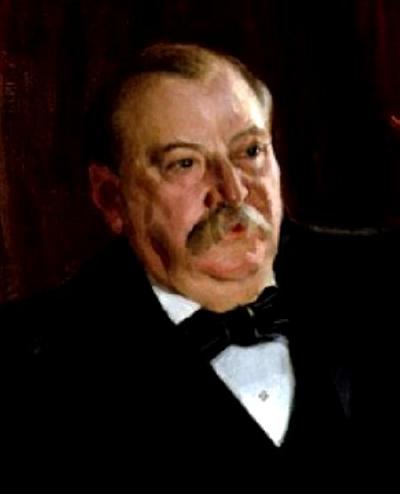 Portrait of Grover Cleveland by Anders Leonard Zorn (1899) By: But he who takes the oath today to preserve, protect, and defend the Constitution of the United States only assumes the solemn obligation which every patriotic citizen--on the farm, in the workshop, in the busy marts of trade, and everywhere--should share with him. The Constitution which prescribes his oath, my countrymen, is yours; the government you have chosen him to administer for a time is yours; the suffrage which executes the will of freemen is yours; the laws and the entire scheme of our civil rule, from the town meeting to the State capitals and the national capital, is yours.... Every citizen owes to the country a vigilant watch and close scrutiny of its public servants and a fair and reasonable estimate of their fidelity and usefulness. Thus is the people's will impressed upon the whole framework of our civil polity--municipal, State, and Federal; and this is the price of our liberty and the inspiration of our faith in the Republic. Grover Cleveland, First Inaugural Address, March 4, 1885, in Joint Congressional Committee on Inaugural Ceremonies, Inaugural Addresses of the Presidents of the United States from George Washington 1789 to George Bush 1989 (Washington: U.S. Government Printing Office, 1989, 171. What is the use of being elected or re-elected, unless you stand for something? Quoted in Robert McElroy, Grover Cleveland: The Man and the Statesman (New York: Harper & Brothers, 1923), vol. I, 271. I have tried so hard to do right. Cleveland's last words, quoted in Allan Nevins, Grover Cleveland: A Study in Courage (New York: Dodd, Mead, 1948), 763. About [Gen. Edward S. Bragg, in seconding the nomination of Grover Cleveland to be the Democratic Party candidate for president in 1884:] ...I stand to-day to voice the sentiment of the young men of my State when I speak for Gov. Cleveland.... They love him, gentlemen, and they respect him, not only for himself, for his character, for his integrity and judgment and iron will, but they love him most for the enemies that he has made. Official Proceedings of the National Democratic Convention Held in Chicago, Ill., July 8th, 9th, 10th and 11th, 1884 (New York: Douglas Taylor's Democratic Printing House, [1884]), 176. William McKinley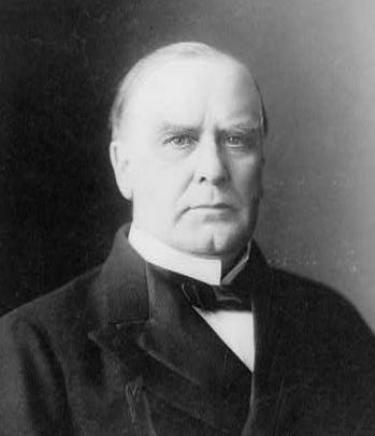 Photograph of William McKinley by Charles Parker (1900)
By: ...I would be the happiest man in America if I could go out of office in 1901, of course with the feeling that I had reasonably met the expectations of the people. I have had enough of it, Heaven knows! I have had all the honor there is in the place, and have had responsibilities enough to kill any man. Margaret Leech, In the Days of McKinley (New York: Harper & Brothers, 1959), 463 & 658, citing a September, 1899, account written by a McKinley aide. Theodore Roosevelt Photogravure of Theodore Roosevelt (1904) By: I am of course in a perfect whirl of work and have every kind of worry and trouble--but that's what I am here for and down at bottom I enjoy it after all. Theodore Roosevelt to his son Kermit Roosevelt, Dec. 4, 1902, in Elting E. Morison, ed.,The Letters of Theodore Roosevelt (Cambridge, Mass.: Harvard University Press, 1951-54), vol. 3, 389. I was fond of boxing and fairly good at it.... I have had to abandon wrestling because I found that in such violent work I tended to lay myself up; and I do but little boxing because it seems rather absurd for a President to appear with a black eye or a swollen nose or a cut lip. Theodore Roosevelt to Baron Pierre de Coubertin, June 15, 1903, ibid., 490 & 491. While President, I have been President, emphatically; I have used every ounce of power there was in the office and I have not cared a rap for the criticisms of those who spoke of my "usurpation of power"; for I knew that the talk was all nonsense and that there was no usurpation. Theodore Roosevelt to George Otto Trevelyan, June 19, 1908, ibid., vol. 6, 1087. About: ...all of his political activities brought to him keen pleasure and enabled him to have (using the boyish vernacular that he never outgrew) a bully time! I remember one such reference that he made during his first presidential term to the advantages of speaking from the White House. I had accused him (as had been done by others) of a tendency to preaching. "Yes, Haven, he rejoined, "most of us enjoy preaching, and I've got such a bully pulpit!" Quoted in George Haven Putnam, introduction to The Works of Theodore Roosevelt (New York: Charles Scribner's Sons, 1926), vol. 9, ix-x. William Howard Taft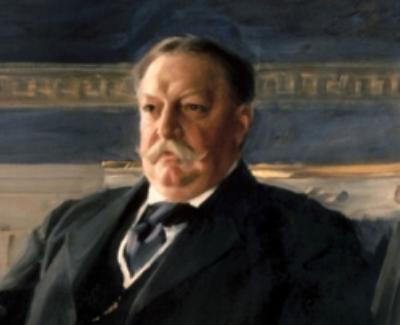 Portrait of William Howard Taft by Anders Leonard Zorn (1911) By: Yesterday the President had a very trying day; one engagement after another kept him confined to the office almost without a break until six o'clock.... At six he came out of his office and said: "I'll be damned if I am not getting tired of this. It seems to be the profession of a President simply to hear other people talk. Come, let's take a walk." William Howard Taft, Nov. 24, 1909, quoted in Archibald W. Butt, Taft and Roosevelt: The Intimate Letters of Archie Butt, Military Aide (Garden City, N.Y.: Doubleday, Doran & Co., 1930), vol. I, 220. Calvin Coolidge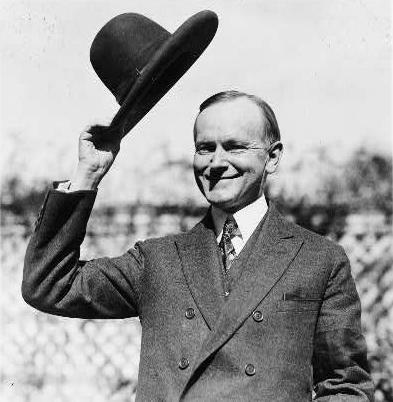 Calvin Coolidge toward the end of By: While I felt qualified to serve, I was also well aware that there were many others who were better qualified. It would be my province to get the benefit of their opinions and advice. It is a great advantage to a President, and a major source of safety to the country, for him to know that he is not a great man. Calvin Coolidge, The Autobiography of Calvin Coolidge (New York: Cosmopolitan Book Corp. 1929), 173. Perhaps one of the reasons I have been a target for so little abuse is because I have tried to refrain from abusing other people. Ibid., 184. The words of the President have an enormous weight and ought not to be used indiscriminately. Ibid., 184. [About his teenaged son and namesake, Calvin:] The day I became President he had just started to work in a tobacco field. When one of his fellow laborers said to him, "If my father was President I would not work in a tobacco field," Calvin replied, "If my father were your father, you would." Ibid., 189-90. Franklin D. Roosevelt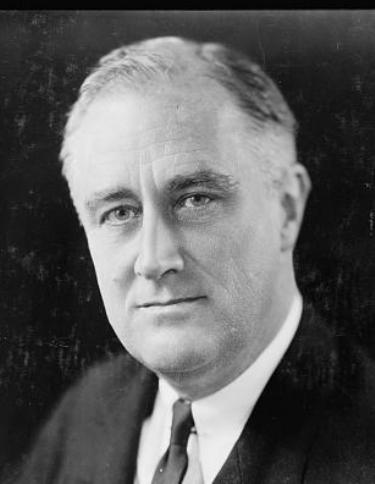 Photograph of Franklin D. Roosevelt by Elias Goldensky (1933) By: [About his ship vacations:] I try to get away a couple of times a year on these short trips on salt water. In Washington, as you know, the working day of the Presidency in these days averages about fifteen hours. Even when I go to Hyde Park or to Warm Springs, the White House office, the callers, and the telephones all follow me. But at sea the radio messages and the occasional pouch of mail reduce official work to not more than two or three hours a day. So there is a chance for a bit of sunshine or a wetted line, or a biography or a detective story or a nap afer lunch. Above all there is the opportunity for thinking things through... Radio Address from the U.S.S. Potomac to Jackson Day Dinners, March 29, 1941, Samuel I. Rosenman, comp., The Public Papers and Addresses of Franklin D. Roosevelt (New York: Harper & Brothers, 1941), vol. 10, 82-83. [Advice to Labor Secretary Frances Perkins about gaining congressional consent for the U.S. to join the International Labor Organization (ILO):] "First, he said, "be sure to see [Secretary of State] Cordell Hull. Go over it all with him and ask his advice and assistance. Remember, the Democratic and Republican members of the Senate Foreign Relations Committee will have to come to a belief that this is a good thing. That is something I can't do. I may be President of the United States, I may be in favor of the ILO, but I can't do it alone. That is a function of the Senate, and you must prepare the way systematically and carefully. Take plenty of time about it. Don't be discouraged. Give them ample opportunity to examine all the facts." Frances Perkins,The Roosevelt I Knew (New York: Viking Press, 1946), 340. About: Mr. Roosevelt made us a mighty fine speech over the radio Sunday night. He spoke our language.... And in addition to all this, he has the best radio voice in America. Course he just read the minutes of the last meeting, but he did it so nice that we didn't hardly notice that he forgot to mention what might be in his mind for the future. Will Rogers, "Mr. Rogers Adds to the Praise of the President's Speech," New York Times, May 9, 1933, 19. He maintained a grip on reality and knew how to recover quickly from such mistakes as the Supreme Court packing bill. A president who suffers a defeat or a loss does so because he has made the wrong decisions and has not acted to recover from his errors. George E. Reedy, The Twilight of the Presidency: From Johnson to Reagan (New York: New American Library, 1987, rev. ed.), 60. Harry S. Truman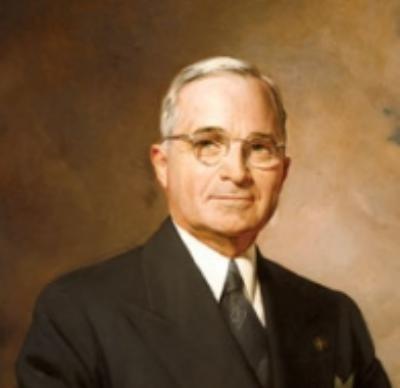 Portrait of Harry S. Truman by Martha Greta Kempton (1947) By: Within the first few months I discovered that being a President is like riding a tiger. A man has to keep on riding or be swallowed. The fantastically crowded nine months of 1945 taught me that a President either is constantly on top of events or, if he hesitates, events will soon be on top of him. I never felt that I could let up for a single moment. Harry S. Truman, Years of Trial and Hope, vol. 2 of Memoirs by Harry S. Truman (Garden City, N.Y.: Doubleday, 1956), 1. By nature not given to making snap judgments or easy decisions, I required all available facts and information before coming to a decision. But once a decision was made, I did not worry about it afterward. ...instinctively I sought perspective in the span of history for the decisions I had to make. That is why I read and re-read history. Most of the problems a President has to face have their roots in the past. Ibid. ...whenever the press quits abusing me I know I'm in the wrong pew. I don't mind it because when they throw bricks at me--I'm a pretty good shot myself and I usually throw 'em back at 'em. New York Times, Feb. 23, 1958, 46. Some of the Presidents were great and some of them weren't. I can say that, because I wasn't one of the great Presidents, but I had a good time trying to be one.... Harry S. Truman, Truman Speaks (New York: Columbia University Press, 1960), 9. About: ...he loved to make decisions.... his own initial impulse when an issue came before him was to make a firm decision then and there; his staff and State Department were forever clinging to his coattails. Richard E. Neustadt, Presidential Power (New York: John Wiley and Sons, 1960), 172. Dwight D. Eisenhower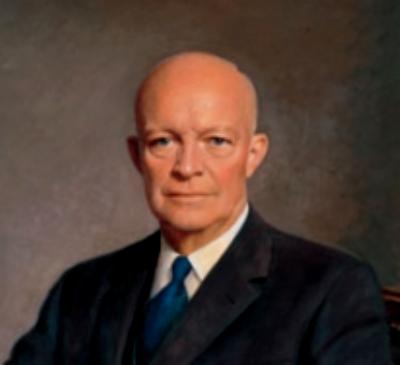 Portrait of Dwight D. Eisenhower by J. Anthony Wills (1967) By: There are no easy matters that will ever come to you as President. If they are easy, they will be settled at a lower level. Quoted by President John F. Kennedy, television-radio interview, Dec. 17, 1962, PPPUS: John F. Kennedy, 1962, 890. (Kennedy said Eisenhower told him this shortly before the Kennedy inauguration.) [During a crisis in which there was fear of a possible war between China and the U.S., White House press secretary James Hagerty passed on a warning to President Eisenhower just before a press conference:] "Mr. President," he said, "some of the people in the State Department say that the Formosa Strait situation is so delicate that no matter what question you get on it, you shouldn't say anything at all." I could see the point of this advice. But I didn't take it. "Don't worry, Jim," I told him as we went out the door of my office, "if that question comes up, I'll just confuse them." [It did come up, and he did confuse them.] Dwight D. Eisenhower, Mandate for Change, 1953-1956 (Garden City, N.Y.: Doubleday, 1963), 477-78. About: In the early summer of 1952, before the heat of the campaign, President Truman used to contemplate the problems of the General-become-President should Eisenhower win the forthcoming election. "He'll sit here," Truman would remark (tapping his desk for emphasis), "and he'll say, 'Do this! Do that!' And nothing will happen. Poor Ike--it won't be a bit like the Army. He'll find it very frustrating." .... "The President still feels," an Eisenhower aide remarked to me in 1958, "that when he's decided something, that ought to be the end of it...and when it bounces back undone or done wrong, he tends to react with shocked surprise." Richard E. Neustadt, Presidential Power (New York: John Wiley & Sons, 1960), 9. The contemporary portrait of him as the forthright old soldier beyond his depth in a world of high government machinations was a caricature; he had, after all, spent a lifetime in the Byzantium of military politics and come out supreme Allied commander.... Eisenhower brought with him to the White House very definite ideas of how a staff should be constructed and should work. They were based on the military model, but as only a professional soldier fully understood, they were adaptable to the vicissitudes of circumstance. The ideas worked for him; later they would not work for Nixon, who did not understand their subtleties. Stephen Hess with James P. Pfiffner, Organizing the Presidency, 3rd ed. (Washington: Brookings Institution, 2002), 55 & 56. John F. Kennedy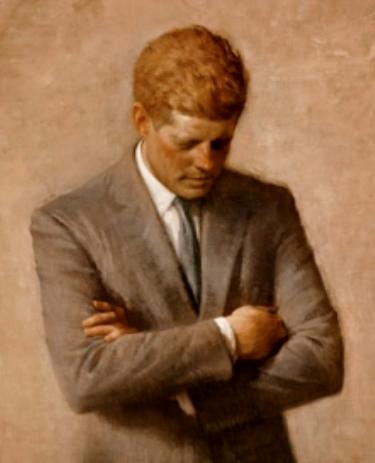 Portrait of John F. Kennedy by Aaron Shikler (1970) By: With a good conscience our only sure reward, with history the final judge of our deeds, let us go forth to lead the land we love... Inaugural Address, Jan. 20, 1961, Joint Congressional Committee on Inaugural Ceremonies, Inaugural Addresses of the Presidents of the United States from George Washington 1789 to George Bush 1989 (Washington: U.S. Government Printing Office, 1989), 308. ...I realize that your staff and wire service photographers may be complaining that they do not enjoy the same green privileges at the local golf courses which they once did. It is true that my predecessor did not object as I do to pictures of one's golfing skill in action. But neither on the other hand did he ever bean a Secret Service man. Address to American Newspaper Publishers Association, April 27, 1961, PPPUS: John F. Kennedy, 1961, 335. [Responding to question about press treatment of his administration and of then-current issues:] Well, I am reading more and enjoying it less and so on, but I have not complained nor do I plan to make any general complaints. I read and talk to myself about it... Press Conference, May 9, 1962, PPPUS: John F. Kennedy, 1962, 376. Lyndon B. Johnson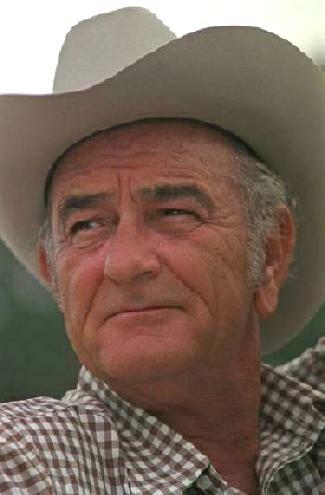 Photograph of Lyndon B. Johnson by Frank Wolfe (1972) By: [After LBJ--following Budget Bureau advice--announced the closing of some veterans' hospitals, members of Congress exploded and the President had second thoughts. One of his staff members, Harry McPherson, later wrote, "If I had been more alert, I would have seen in that the signs of a man very carefully stepping away from a precipice to which his advisors had led him." LBJ suggested placing a few key members of Congress on a committee to evaluate the hospitals. The committee recommended keeping most of them open, and the President followed their advice:] One day he laughed and said, "Tell your boys with the computers that they ought to study up on the Congress sometime." Harry McPherson, A Political Education (Boston: Little, Brown and Co., 1972), 281-82. [Describing his thoughts as his successor was sworn into office:] As I watched the ceremony, I reflected--as I have done so many times in the last several years--on how inadequate any man is for the office of the American Presidency. The magnitude of the job dwarfs every man who aspires to it. Every man who occupies the position has to strain to the utmost of his ability to fill it.... The enormous challenge he faces, as he looks out on his country and the world from the observation post of the White House, is knowing what is the right thing to do, for the complexities of the problems are past description.... I heard Richard Nixon conclude his oath of office with the words "so help me God." To me, they were welcome words. I remember two thoughts running through my mind: first, that I would not have to face the decision any more of taking any step, in the Middle East or elsewhere, that might lead to world conflagration--the nightmare of my having to be the man who pressed the button to start World War III was passing; and second, that I had fervently sought peace through every available channel and at every opportunity and could have done no more. Lyndon Baines Johnson, The Vantage Point: Perspectives of the Presidency, 1963-1969 (New York: Holt, Rinehart and Winston, 1971), 565-66. [LBJ on the Vietnam War:] I knew from the start that I was bound to be crucified either way I moved. If I left the woman I really loved--the Great Society--in order to get involved with that bitch of a war on the other side of the world, then I would lose everything at home. All my programs. All my hopes to feed the hungry and shelter the homeless. All my dreams to provide education and medical care to the browns and the blacks and the lame and the poor. But if I left that war and let the Communists take over South Vietnam, then I would be seen as a coward and my nation would be seen as an appeaser and we would both find it impossible to accomplish anything for anybody anywhere on the entire globe. ....You see, I was as sure as any man could be that once we showed how weak we were, Moscow and Peking would move in a flash to exploit our weakness. They might move independently or they might move together. But move they would--whether through nuclear blackmail, through subversion, with regular armed forces or in some other manner.... And so would begin World War III. So you see, I was bound to be crucified either way I moved. Former President Lyndon B. Johnson to Doris Kearns in 1970, quoted in her Lyndon Johnson and the American Dream (New York: Harper & Row, 1976), 251-53. (Kearns, an historian based at Harvard, served as a White House intern at the end of Johnson's presidency and then helped him with his memoirs.) About: My perceptions of him during those last nine months in the White House were as complicated and contradictory as he was himself. At one moment, he could be the statesman, grappling with the full range of responsibilities and executing his office with skill and intelligence.... Moments later, the ambience could tilt toward absurdity when personal idiosyncrasy sent the very staff that had just been hard at work on matters of high policy off on a desperate search for huge quantities of a specific brand of peanut brittle which Lyndon Johnson needed within half an hour.... Typically, when one morning he announced a new campaign to lose ten pounds, by late afternoon the White House was stocked with 150 pounds of cottage cheese, 275 containers of yoghurt, 40 loaves of diet bread, 15 boxes of Melba toast, and 10 pounds of his favorite diet candy, flown in by courier plane from his favorite store in San Antonio, Texas. The night the diet came to an end, gallons of ice cream and platters of homemade cookies suddenly found their way into the gleaming white refrigerators and stainless-steel kitchens. Doris Kearns, ibid., 6. Johnson's attitude toward both houses of Congress caused him problems in the later years of his presidency. He had experience in driving cattle, where the technique is to start the cattle slowly and then stampede them at the end. But when you deal with Congress, you should know about the psychology of pigs, which is opposite that of cattle. In driving hogs, you start them as fast as you can, you make all kinds of noise, and you try to panic them... But once they are started, you slow them as you go along. When you get them right up to the pen you want them in, you come to a stop. The pigs will then look right and left and think that they have discovered it. And in they go. Eugene J. McCarthy, The Hard Years (New York: Viking Press, 1975), 23. Richard M. Nixon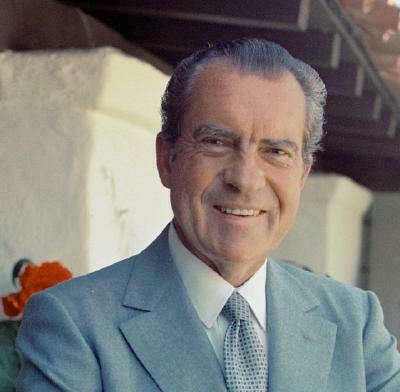 Photograph of Richard Nixon by Oliver Atkins (1972) By: As you well know, the President of the United States, under the Constitution, makes nominations with the advice and consent of the Senate. I have found in my short term of office that it is very easy to get advice and very hard to get consent. Press Conference, June 19, 1969, PPPUS: Richard Nixon, 1969, 475. Gerald R. Ford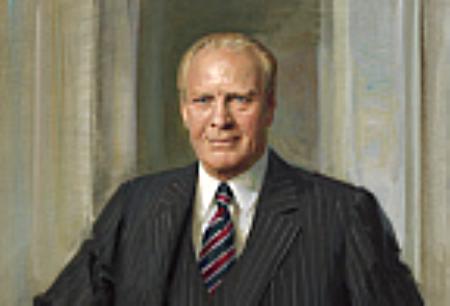 Portrait of Gerald R. Ford by Everett Raymond Kinstler (1987) By: [After Richard Nixon's Watergate-related resignation as president, Vice President Gerald Ford succeeded him in office. Ford had served many years in the House of Representatives, eventually becoming the Republicans' minority leader there. A few days after becoming president, he addressed Congress:] ...part of my heart will always be here on Capitol Hill. I know well the coequal role of the Congress in our constitutional process. I love the House of Representatives. I revere the traditions of the Senate... This Congress, unless it has changed, I am confident, will be my working partner as well as my most constructive critic. I am not asking for conformity. I am dedicated to the two-party system, and you know which party I belong to. I do not want a honeymoon with you. I want a good marriage. I want progress, and I want problemsolving which requires my best efforts and also your best efforts. I have no need to learn how Congress speaks for the people. As President, I intend to listen. Address to a Joint Session of Congress, August 12, 1974, PPPUS, Gerald R. Ford, 1974, 6-7. James Earl Carter, Jr. Photograph of James Earl Carter, Jr., (1977 White House photo) By: We now have a partnership with Panama to maintain and to operate and to defend the canal. We have the clear right to take whatever action is necessary to defend the canal and to keep it open and neutral and accessible. We do not have the right to interfere in Panama's internal affairs. That is a right we neither possess nor desire. Remarks on Senate Ratification of the Panama Canal Treaty, April 18, 1978, PPPUS: Jimmy Carter, 1978, Book I, 758. [During his re-election campaign, when asked why he wanted to continue in the presidency when "there's so much difficulty with it":] It's a difficult job; it's a challenging job, and on the most crucial issues of life or death, peace or war, progress or retrogression, it's a lonely job.... And the decisions that I make I realize affect the lives, perhaps, of all people who live in this country and, indeed, the entire world... ...when I address a crisis or potential crisis, my hope is that it will not become a crisis for our country and that you and the news media and the American people never even know about it. If I handle it well, a potential crisis, it doesn't become important to you. ....So, it is a challenging job, but it's an exciting and dynamic opportunity to be part of making a great nation even greater. So, in that respect it's a very good job. Interview with KOMO-TV, Tacoma, Wash., Sept. 23, 1980, PPPUS: Jimmy Carter, 1980-81, Book II, 1913-1914. About: [Speaking of President Carter and his chief of staff, Hamilton Jordan, and their problems with Congress:] If presidential popularity can be expected to fade, leaders in Congress have every incentive to wait for that to happen.... A look at the history underpinning the tag "honeymoon" could thus have made Carter and Jordan expect, not be aggrieved by, an early relationship with Congress less like a honeymoon than like the opening round of a prize fight. Richard E. Neustadt and Ernest R. May, Thinking in Time: The Uses of History for Decision-Makers (New York: Free Press/Macmillan, 1986), 73. Ronald Reagan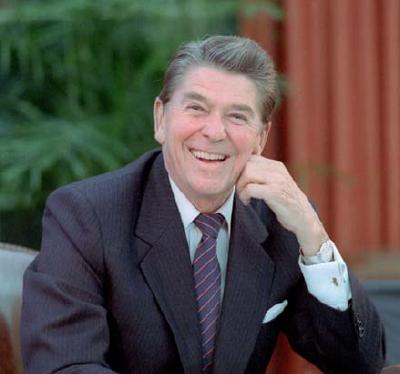 Photograph of Ronald Reagan by Pete Souza (1984) By: From time to time we've been tempted to believe that society has become too complex to be managed by self-rule, that government by an elite group is superior to government for, by, and of the people. Well, if no one among us is capable of governing himself, then who among us has the capacity to govern someone else? All of us together, in and out of government, must bear the burden. Inaugural Address, Jan. 20, 1981, PPPUS: Ronald Reagan, 1981, 1. Our critics call themselves prochoice. But have they ever stopped to think that the unborn never have a choice? When Roe versus Wade goes--as I have faith it must--the way of Dred Scot and "separate but equal," a new debate will rise in the statehouses of our land. And the voice that I believe must be heard and, in the end, shall be heard over all the others is the voice of life. Remarks at Annual Dinner of the Knights of Malta, Jan. 13, 1989, PPPUS: Ronald Reagan, 1988-89, Book II, 1734. People ask how I feel about leaving. And the fact is, "parting is such sweet sorrow." The sweet part is California and the ranch and freedom. The sorrow--the goodbyes, of course, and leaving this beautiful place. Farewell Address to the Nation, Jan. 11, 1989, PPPUS: Ronald Reagan, 1988-89, Book II, 1719. About: [Reagan and the Iran-Contra disaster:] Here is a President, eyes fixed in one direction, setting himself up to be clobbered from another--without protective instincts roused by anything or anyone around him. Is that unique to Reagan? Hardly.... Presidential vulnerability to personal misjudgments fueled by dubious advice is breathtaking--and persistent. Richard E. Neustadt, Presidential Power and the Modern Presidents (New York: Free Press/Macmillan, 1990), 289 & 290. George Bush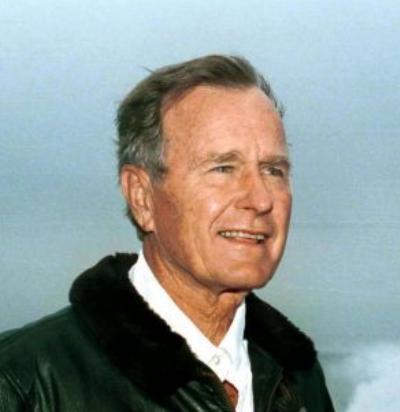 Photograph of George Bush by David Valdez (1991) By: A President is neither prince nor pope, and I don't seek a window on men's souls. Inaugural Address, Jan. 20, 1989, PPPUS, George Bush, 1989, Book I, 3. I was afraid you might be feeling I had dishonored the community with some of the excesses that have taken place out here, but I want the record to show that when the bottom fell off of the starboard engine on our boat the other day it was not an encounter with a lobster trap. The Coast Guard guy went out and took a look at the reef off the point there and started to tell me that he thought maybe, accidentally, I had hit a rock. And I told him, "Look, rocks do not grow in these waters. I've been here for 65 years running around in a boat--find some other answer. Even if there is metal on the rock out there, I did not hit that rock." And as Commander in Chief of the Coast Guard, he changed his mind as I was talking to him, and we now think it was a submerged board. Remarks at a Chamber of Commerce Luncheon, Kennebunkport, Maine, Aug. 30, 1989, PPPUS, George Bush, 1989, Book II, 1121. Elsewhere, we've proposed turning programs back to States and localities. This enables people to craft the most appropriate solution for the problems that they confront in this diverse land of ours. The point is simple: You don't always need to propose a new program to pursue a national goal. Often a President can lead by encouraging the values of service, by helping foster a national spirit of commitment and responsibility. Remarks at Princeton University, Princeton, May 10, 1991, PPPUS, George Bush, 1991, Book I, 498. About: He wasn't crazy about giving speeches. He liked to work in the office and take care of his inbox. He was a problem solver.... If you gave him the choice between sitting in his office and solving problems all day or going out and making speeches, he'd solve the problems, because that's what he thought he was hired to do. Former Vice President J. Danforth Quayle, interview with the Miller Center, University of Virginia, March 12, 2002 William J. Clinton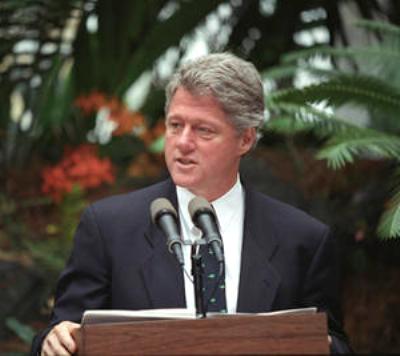 Photograph of William J. Clinton by Robert McNeely (1993) By: The divide of race has been America's constant curse. And each new wave of immigrants gives new targets to old prejudices.... These forces have nearly destroyed our Nation in the past. They plague us still.... These obsessions cripple both those who hate and of course those who are hated, robbing both of what they might become. We cannot, we will not, succumb to the dark impulses that lurk in the far regions of the soul everywhere. We shall overcome them. And we shall replace them with the generous spirit of a people who feel at home with one another.... .... Martin Luther King's dream was the American dream. His quest is our quest: the ceaseless striving to live out our true creed. Second Inaugural Address, Jan. 20, 1997, PPPUS, William J. Clinton, 1997, Book I, 44-45. [About the presidency:] We need to demystify the job. It is a job.... There's a lot to be said for showing up every day and pushing the rock up the hill.... If you're willing to win in inches as well as feet, a phenomenal amount of positive things can happen.... If you love your country and have something you want to do and you put together a good team, and you're willing to be relentless and exhaust yourself in the effort, the results will come. Quoted in Joe Klein, The Natural (New York: Broadway Books/Random House, 2002), 208. George W. Bush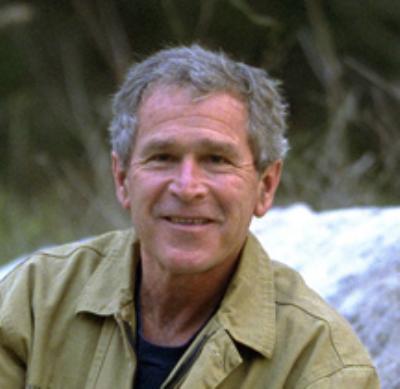 Photograph of George W. Bush by Eric Draper (2002) By: [After 9/11:] And we have seen our national character in eloquent acts of sacrifice. Inside the World Trade Center, one man, who could have saved himself, stayed until the end at the side of his quadriplegic friend. A beloved priest died giving the last rites to a firefighter. Two officeworkers, finding a disabled stranger, carried her down 68 floors to safety. Remarks at the National Day of Prayer and Remembrance Service, Sept. 14, 2001, PPPUS: George W. Bush, 2001, Book II, 1109. I'm going to make hard decisions and be willing to lead and make the tough calls. Some don't like that. But my job is to solve problems, not pass them on. I'm not going to read the history about it while I'm alive because I don't trust short-term history. Most historians wouldn't have voted for me, so I don't think they can write an objective history. But I think long-term history will say that this Administration accomplished a lot and recognized the changing times and helped adjust policy to those changing times. Interview, Time, Sept. 6, 2004, 43. Like all who have held this office before me, I have experienced setbacks. And there are things I would do differently if given the chance. Yet I've always acted with the best interests of our country in mind. I have followed my conscience and done what I thought was right. You may not agree with some of the tough decisions I have made, but I hope you can agree that I was willing to make the tough decisions. Farewell Address to the Nation, Jan. 15, 2009, PPPUS: George W. Bush, 2008-2009, Book II, 1578. Barack Obama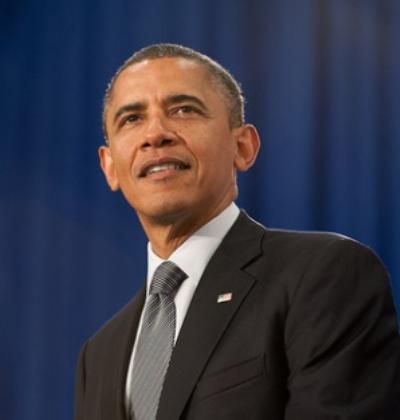 Photograph of Barack Obama by Christopher Dilts (2012) By: The time has come to reaffirm our enduring spirit, to choose our better history, to carry forward that precious gift, that noble idea passed on from generation to generation: the God-given promise that all are equal, all are free, and all deserve a chance to pursue their full measure of happiness. .... Our capacity remains undiminished. But our time of standing pat, of protecting narrow interests and putting off unpleasant decisions, that time has surely passed. Starting today, we must pick ourselves up, dust ourselves off, and begin again the work of remaking America. Inaugural Address, Jan. 20, 2009, PPPUS: Barack Obama, 2009, Book I, 1-2. All in all we're proud of the change we've brought to Washington in these first 100 days, but we've got a lot of work left to do.... During the second 100 days, we will design, build, and open a library dedicated to my first 100 days. It's going to be big, folks. In the next 100 days, I will learn to go off the prompter and Joe Biden will learn to stay on the prompter. In the next 100 days, our bipartisan outreach will be so successful that even John Boehner will consider becoming a Democrat. Remarks at the White House Correspondents' Association Dinner, May 9, 2009, ibid., 626. Other Comments on the PresidencyAmbition I must say that I had no boyhood dream of being President of the United States. I wanted to be the first baseman for the New York Yankees. I think that's the kind of dream you ought to have when you're young. Sen. Eugene J. McCarthy (D-Minn.), April 19, 1968, quoted in Carol E. Rinzler, ed, Frankly McCarthy (Washington: Public Affairs Press, 1969), 39. It is obvious that a man who has reached the Presidency has reached the very top of the political profession. The summit is a peculiar place, especially when it is occupied by the highly aggressive psychology of a political animal. Very few men reach the top spot unless they have such a psychology. When they get there, they retain all of their ambitious desires to advance but find they have no further goals. There is nothing more that the people can grant a President. Therefore, it is only a matter of time until constituencies fade in his sight. The larger question becomes the reaction of history to his administration rather than the reaction of voters.... And there can be little doubt that the question of history has become obsessive with our Presidents. The rapid rise of Presidential libraries in recent years has taken on almost megalomaniac overtones.... George E. Reedy (former press secretary to President Lyndon B. Johnson), The Presidency in Flux (New York: Columbia University Press, 1973), 11-12. Courage [In a novel about a planned military take-over of the U.S., "Col. Martin J. Casey" visits "President Jordan Lyman" in the White House to warn him about the coup:] ".... But the way it is, Mr. President, it's worse. I'm frightened, sir." "We don't scare easy in this house, Colonel. Suppose you let me have the whole story." Fletcher Knebel and Charles W. Bailey II, Seven Days in May (New York: Harper & Row, 1962), 64. Decisions A great President is not the product of his staff but the master of his house. He must know when to reject the advice of his experts and when to back up a Secretary. He must be able to win a consensus without waiting for one. He must be attuned to public opinion but not bound by it. He must know the limitations of his office as well as its powers.... Theodore C. Sorensen, Decision-Making in the White House (New York: Columbia University Press, 1963), [87]. A President must have the confidence in himself to be as slow as he needs to be in coming to a decision; once he reaches that decision, he needs to be able to explain his thinking and convince others, and he must always continue to reevaluate his conclusions in light of subsequent developments. Robert C. Byrd and Steve Kettmann, Letter to the New President (New York: Thomas Dunne Books/St. Martin's Press, 2009, 14. Ethics We have noted that corruption appears to visit the White House in fifty-year cycles. This suggests that exposure and retribution inoculate the Presidency against its latent criminal impulses for about half a century. Around the year 2023 the American people would be well advised to go on the alert and start nailing down everything in sight. Arthur M. Schlesinger, Jr.,The Imperial Presidency (Boston: Houghton Mifflin, 1973), 418. Power In instance after instance the exceptional behavior of our earlier "strong" Presidents has now been set by statute as a regular requirement. Theodore Roosevelt once assumed the "steward's" role in the emergency created by the great coal strike of 1902; the Railway Labor Act and the Taft-Hartley Act now make such interventions mandatory upon Presidents. The other Roosevelt once asserted personal responsibiity for gauging and for guiding the American economy; the Employment Act binds his successors to that task. Wilson and F.D.R. became chief spokesmen, leading actors, on a world stage at the height of war; now UN membership, far-flung alliances, prescribe that role continuously in times termed "peace." Through both world wars our Presidents grappled experimentally with an emergency-created need to "integrate" foreign and military policies; the National Security Act now takes that need for granted as a constant of our times. F.D.R. and Truman made themselves responsible for the development and first use of atomic weapons; the Atomic Energy Act now puts a comparable burden on the back of every President. Richard E. Neustadt, Presidential Power (New York & London: John Wiley & Sons, 1960), 5-6. It is said that the Presidency of the United States is the most powerful office in the world. What is not said or even generally understood is that the power of the chief executive is hard to achieve, balky to manage, and incredibly difficult to exercise. It is not raw, corrosive power, nor can it be used willfully.... The power of the President is great if he can use it; but it is a moral power, a power activated by persuasion and discussion... John Steinbeck, America and Americans (London: William Heinemann Ltd., 1966), 46-47. Self-restraint has never characterized the American politician or the American people generally. In fact, self-restraint seems the most un-American quality. Our Constitution, with its theory of colliding powers, encourages an optimistic game plan--that a president can run with the ball until he is tackled. What if the resistance cannot find effective political expression? Or takes too long to appear? Samuel Lubell, The Future While It Happened (New York: W. W. Norton, 1973), 42. I do not mean to say...that "strength" in the Presidency is to be equated with "goodness" and "greatness." A strong President is a bad President, a curse upon the land, unless his means are constitutional and his ends democratic, unless he acts in ways that are fair, dignified, and familiar, and pursues policies to which a "persistent and undoubted" majority of the people has given support. We honor the great Presidents of the past, not for their strength, but for the fact that they used it wisely to build a better America. Clinton Rossiter, The American Presidency (Baltimore: Johns Hopkins University Press, 1987, 2nd ed., reprint), 243. [On the use of presidential "signing statements":] Federal law is not some buffet line where the president can pick parts of some laws to follow and others to reject. Sen. Robert C. Byrd (D-W.Va.), quoted in Carl Hulse, "Lawmakers to Investigte Bush on Laws and Intent," New York Times, June 20, 2007, A-16. Quality "Speakin' iv pollyticks," said Mr. Hennessy, "who d'ye think'll be ilicted?" "Afther lookin' th' candydates over," said Mr. Dooley, "an' studyin' their qualifications carefully I can't thruthfully say that I see a prisidintial possibility in sight." Finley Peter Dunne, Mr. Dooley on Making a Will and Other Necesary Evils (New York: Charles Scribner's Sons, 1919), 101. We have lived under over 30 Presidents. They couldn't have all been great. In fact if we told the truth about 'em, maybe some of 'em was pretty punk. But we drug along in spite of 'em. Will Rogers (1931), quoted in Paula McSpadden Love, comp., The Will Rogers Book (Indianapolis: Bobbs-Merrill, 1961), 97. The Presidency is no place for amateurs. Richard E. Neustadt, Presidential Power (New York and London: John Wiley & Sons, 1960), 180. Presidents glory in telling people that they are prisoners of a system and of circumstances beyond their control. This is probably the subconscious device by which the chief executive prepares his alibi for history. George E. Reedy, The Twilight of the Presidency (New York and Cleveland: New American Library and World Publishing Co., 1970), 31. Speechwriting for Presidents ...group authorship is rarely, if ever, successful. A certain continuity and precision of style, and unity of argument, must be carefully drafted, particularly in a public communication that will be read or heard by many diverse audiences. Its key principles and phrases can be debated, outlined, and later reviewed by a committee, but basically authorship depends on one man alone with his typewriter or pen. (Had the Gettysburg address been written by a committee, its ten sentences would surely have grown to a hundred, its simple pledges would surely have been hedged, and the world would indeed have little noted or long remembered what was said there.) Theodore C. Sorensen, Decision-Making in the White House (New York: Columbia University Press, 1963), 61-62. Treatment of Presidents by Citizens Everybody now expects the man inside the White House to do something about everything. Richard E. Neustadt, Presidential Power (New York: John Wiley & Sons, 1960), 6. It is said of us that we demand second-rate candidates and first-rate Presidents.... The President must be greater than anyone else, but not better than anyone else. We subject him and his family to close and constant scrutiny and denounce them for things that we ourselves do every day. A Presidential slip of the tongue, a slight error in judgment--social, political, or ethical--can raise a storm of protest. We give the President more work than a man can do, more responsibility than a man should take, more pressure than a man can bear. We abuse him often and rarely praise him. We wear him out, use him up, eat him up. And with all this, Americans have a love for the President that goes beyond loyalty or party nationality; he is ours, and we exercise the right to destroy him. John Steinbeck, America and Americans (London: William Heinemann Ltd., 1966), 46. |